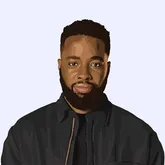My Five Steps When a Sickle Cell Crisis Starts
When a crisis starts, it feels like the peaceful existence I once knew is crumbling away.

Dunstan Nicol-Wilson is from London, England, and was diagnosed with the “invisible disorder” sickle cell anemia from birth. Nicol-Wilson has a BSc in bioscience and an MSc in public health (global health). He has spent his career in research governance and is now a clinical project manager. In addition, he is also a freelance columnist and mentor. Nicol-Wilson began advocating for sickle cell anemia in 2018 through various talks, columns, and community outreach. He hopes his advocacy will raise awareness for sickle cell and blood donation, encouraging others to share their stories. Outside of work and advocacy, he loves to travel, try new experiences, and spend time with friends and family. He can be contacted via Instagram and LinkedIn.
When a crisis starts, it feels like the peaceful existence I once knew is crumbling away.
To be complete, a man must be nurturing, resilient, emotionally available, open, and more.
What would my everyday life look like? What would my limits be? Would I have limits?
I never had a mentor for my sickle cell disease, but I want to be one for young patients now.
When a sickle cell crisis takes over, I am in a very vulnerable state of dependence on others. Thankfully, my support network plays a pivotal role ...
Reflections on Sickle Cell Disease After My Birthday Last month, I celebrated my birthday, and I'm genuinely grateful to see another year. I feel very blessed, as in recent months, I've experienced loss within the sickle cell community. Each loss reminds me that very few things are guaranteed in this life. So, each day I am blessed to have is essential to cherish and be thankful for.With another year to look forward to, I've been in a reflective mood regarding the positives and negatives I've experienced in my years of sickle cell. Looking back, what have I learned?